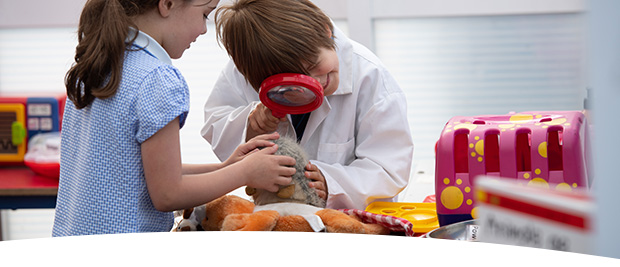Computing
Intent
Our vision for Computing at Prior Heath is that all members of our school community appreciate its relevance as a vital tool in equipping children with the knowledge and skills to use ICT safely, confidently and competently.
We aim to provide a safe computing environment which keeps pace with evolving technology. Our intent is to provide the children with the key skills, techniques and confidence to operate technology effectively, safely and creatively. We also aim to develop an appreciation regarding the potential of Computing and encourage children to enhance their learning by applying their computing skills across the whole curriculum.
Implementation
Children will learn the skills they need for learning, communication, finding information and controlling and understanding the environment. Computing is a key component of each integrated topic allowing the children opportunities to apply their skills meaningfully across the curriculum, independently or in collaboration with others.
Our computing curriculum has been planned so that, throughout their time at Prior Heath, the children will learn about:
- Algorithms
- Programming
- Debugging
- Using technology purposefully
- Online safety (see Online safety policy)
- How technology is used beyond school
Computing skills are taught in dedicated lessons and are also integrated into cross curricular learning so that it is being used to support all of our learning. This is done through whole class lessons, group work, paired or individual work. Our computing planning links our learning into all curriculum areas. The children use learn pads to support their learning, such as in continuous provision and during guided reading sessions.
In the EYFS, computing is planned and taught through adult directed teaching combined with other areas of development. It is also included as part of the children’s continuous provision. Parents are encouraged to send observations of their children using, recognising and talking about technology via Tapestry, an online learning journal.
In Key Stage 1, children are taught the 3 main strands of the National Curriculum, comprising of digital literacy, information technology and computer science. These aspects are taught progressively and allow the children to embed their computing skills. At Prior Heath, Computing teaches the children to create and debug simple programs using code. The children are introduced to subject specific language and they apply this into different contexts. They learn to give clear instructions to each other orally before learning how to program simple algorithms.
All pupils are encouraged to select and use technology for particular purposes. They have access to computers, learn pads and laptops. The children are shown how to use different programs for effective and clear purposes and are given opportunities to store and modify their work.
Children often record and save their work. Teacher assessments are supported through year group and whole staff moderation of computing work.
Online Safety
Staff at Prior Heath place great importance on keeping the children and their families safe online. Children take part in online safety lessons at the beginning of each term and sign an agreement that is displayed in their classroom. During each lesson, these rules are shared and children are reminded to share any concerns or worries they may have. Online Safety is also included in our assemblies.
Impact
Children thoroughly enjoy computing lessons at Prior Heath. Once the children have engaged in our Computing curriculum, they become digitally literate and are equipped with the skills needed to join the rest of the world on its digital platform in a safe and purposeful way.
Children demonstrate a strong understanding of how to use the internet safely.
They become more confident and independent learners and can transfer the skills they have learnt into situations that require problem-solving, logical thinking and self-evaluation.
The Progression of Skills for Computing from Reception to Year 2 can be found here. (PDF, 115.02 kB).
Online Safety websites
The following websites have been recommended to us and provide important information about staying safe online:
CEOPs (Child Exploitation and Online Protection) Think U Know: The Think U Know website https://www.thinkuknow.co.uk/ provides information on internet safety and the sites young people like to visit. It is separated into sections relevant for 5-7 years, 8-10 years and 11-16 years. There is also an informative Parents/Carers section.
NSPCC: The NSPCC’s Keeping Children Safe information includes advice about online safety. Their resource Net Aware (, 4 kB) has recently been updated and is now available as a free mobile app for iOS and Android. Net Aware is a parents’ guide to 50 of the most popular social media sites, apps, and games that young people use.
Childnet International: Childnet International http://www.childnet.com/ is a non-profit organisation working with others to help make the internet a great and safe place for children. Here you will find top tips, games and internet safety information to help young people get the very best out of the internet and stay safe online.
Internet Matters: Internet Matters http://www.internetmatters.org/ provides advice on important online safety issues, news and advice from industry experts, guidance on setting parental controls and filters and reviews on the latest technology and apps.
Parentzone: https://parentzone.org.uk/ provides information and advice for families including some useful parents’ guides.
Virgin Media: Virgin Media O2 have created a children’s internet safety test to help build awareness for parents and children of all ages to ensure they are better protected online: Virgin Media Online Safety Children’s Internet Safety Test


